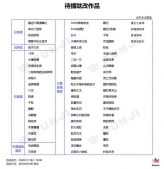hooks的作用
它改变了原始的React类的开发方式,改用了函数形式;它改变了复杂的状态操作形式,让程序员用起来更轻松;它改变了一个状态组件的复用性,让组件的复用性大大增加。
useState
|
1
2
3
4
5
6
|
// 声明状态const [ count , setCount ] = useState(0);// 使用状态<p>You clicked {count} times</p><button onClick={()=>{setCount(count+1)}}>click me</button> |
useEffect
一个参数
|
1
2
3
|
useEffect(()=>{ console.log("首次渲染与更新")}) |
模拟:
componentDidMount componentDidUpdate
一个参数带return
|
1
2
3
4
|
useEffect(()=>{ console.log("首次渲染与更新")return ()=>{console.log(首次卸载)}}) |
模拟:
- componentDidMount
- componentDidUpdate
return
- componetWillUnmount
- componentDidUpdate
第二个参数是空数组,return
|
1
2
3
4
|
useEffect(()=>{ console.log("首次渲染与更新")return ()=>{console.log(首次卸载)}},[]) |
相对于生命周期的componentDidMount和componetWillUnmount
第二个参数是具体的值
|
1
2
3
4
|
useEffect(()=>{ console.log("首次渲染与更新")return ()=>{console.log(首次卸载)}},[num]) |
模拟
- componentDidMount
- componentDidUpdate(update只对num有用)
return
- componetWillUnmount
- componentDidUpdate(update只对num有用)
useRef
|
1
2
3
4
|
const inp = useRef(null)<input ref={inp}>//调用inp.current.value |
自定义hook
定义:const [size,setSize] = useState({height:xxx,width:xxx})
处理:
|
1
2
3
4
5
|
const onResize = ()=>{setSize({width:xxx,height:xxx})} useEffect(()=>{监听事件 window.addEventListener(“resize”,onResize) return 移除监听()=>window.removeEventListener(“resize”,onResize) },[]) |
返回 return size
使用 const size = useWinSize()
到此这篇关于react的hooks的用法详解的文章就介绍到这了,更多相关react hooks用法内容请搜索服务器之家以前的文章或继续浏览下面的相关文章希望大家以后多多支持服务器之家!
原文链接:https://blog.csdn.net/qq_40994735/article/details/108985271





